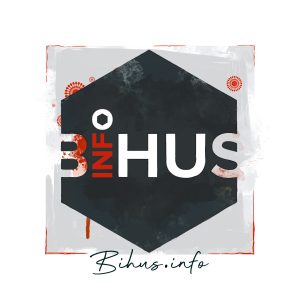25 Mar 2019 | Awards, News and features
[vc_row][vc_column][vc_video link=”https://youtu.be/VKf4-ki-cds”][vc_column_text] Bihus.info is a group of independent investigative journalists in Ukraine who – despite threats and assaults – are fearlessly exposing the corruption of many Ukrainian officials.
Bihus.info is a group of independent investigative journalists in Ukraine who – despite threats and assaults – are fearlessly exposing the corruption of many Ukrainian officials.
In the last two years alone, Bihus.info’s coverage has contributed to the opening of more than 100 legal cases against corrupt officials, helped save 500 million hryvnia (£13.8 million) of public money from embezzlement, and led to the dismissal over 20 compromised candidates from the competition for seats on the reformed supreme court.
Chasing money trails, murky real estate ownership and Russian passports, Bihus.info produces hard-hitting, in-depth reports for popular television programme, Nashi Hroshi (Our Money), which illuminates the discrepancies between the officials’ real wealth and their official income.
The team’s goal is not just informing Ukrainians, but to convince them that exposing corruption is nothing to shy away from. To do this, it has sought to involve citizens and to improve the standards of Ukrainian investigative journalism as a whole. For example, the Bihus.info team created the Ukraine’s largest open registry of officials’ tax declarations, which became the source of many of their reports. They gave access to other publications and projects as well.
Bihus.info then launched the Tynsy! [Push!] project in which lawyers follow up on investigations to translate them into action – writing reports to law enforcement agencies, monitoring investigations and arguing cases in courts. The lawyers also assist journalists before and after publication. Legal support is provided not only to journalists of Bihus.Info, but also to corruption fighters belonging to over 50 organisations from all over Ukraine.
Investigative journalism in Ukraine is an increasingly risky business. Journalists have been beaten, persecuted and killed. Transparency International’s 2017 Corruption Perception Index ranks the country 130th place out of 180 countries. In 2015, The Guardian called Ukraine “the most corrupt nation in Europe”.
The Bihus.info team has been repeatedly attacked by MPs’ bodyguards and secret service agents. In the three years it has been operating, the team has been the victim of four serious assaults. In the first of the three, the crew was attacked by the son-in-law of the deputy minister of Internal Affairs. In 2018, the Bihus.info team found out it was being followed by the Security Services.
In 2018, the team has investigated government and opposition politicians, unelected officials and other public figures. One of their reports uncovered the misuse of international aid by the head of the Ukrainian Football Federation.
In another recent investigation, Bihus.info exposed that most of the family members of one of the highest intelligence officers in Ukraine had Russian passports – while the war between Russia and Ukraine continues.[/vc_column_text][vc_separator][vc_row_inner][vc_column_inner width=”1/2″][vc_single_image image=”104691″ img_size=”full” onclick=”custom_link” link=”https://www.indexoncensorship.org/2019/01/awards-2019/”][/vc_column_inner][vc_column_inner width=”1/2″][vc_column_text]
Index on Censorship’s Freedom of Expression Awards exist to celebrate individuals or groups who have had a significant impact fighting censorship anywhere in the world.[/vc_column_text][/vc_column_inner][/vc_row_inner][vc_separator][/vc_column][/vc_row][vc_row][vc_column][vc_basic_grid post_type=”post” max_items=”4″ element_width=”6″ grid_id=”vc_gid:1553263258536-1edfda11-60d5-3″ taxonomies=”26925″][/vc_column][/vc_row]
20 Mar 2019 | Awards, News and features
[vc_row][vc_column][vc_video link=”https://youtu.be/Ux4icHaQpoQ”][vc_column_text] SFLC.in (Software Freedom Law Centre) tracks internet shutdowns in India, a crucial service in a country with the most online blackouts of any country in the world. The tracker was the first initiative of its kind in India, and has quickly become the top source for journalists reporting on the issue.
SFLC.in (Software Freedom Law Centre) tracks internet shutdowns in India, a crucial service in a country with the most online blackouts of any country in the world. The tracker was the first initiative of its kind in India, and has quickly become the top source for journalists reporting on the issue.
More Indians are gaining access to the internet and the government even rolled out a Digital India project to make government services available to its citizens online. But while this move online has been beneficial for many, internet connections have also become less reliable.
SFLC.in has noticed a staggering increase in the number and frequency of shutdowns in the country, often to subdue unrest or prevent cheating during examinations. The organisation has recorded at least 251 shutdowns since 2012, 113 of which took place in 2018 alone, the most in any country in the world – and by a wide margin.
Since service providers don’t notify the public of a shutdown, SFLC.in monitors the national and local press, and then updates its Internet Shutdown Tracker with any reports. The tracker takes the form of a real-time map of ongoing shutdowns by state and district, so that the information can be used to hold local institutions accountable.
The website also provides reports and analysis based on the project’s database, and keeps a record of blocked URLs and take-down notices received by websites. SFLC.in has since made the source code available for activists for free.
The tracker has become a go-to resource for politicians and MPs as well as reporters: it was cited in discussions in the Indian parliament, and its data convinced the government to amend existing legislation.
The organisation, which brings together lawyers, policy analysts and technologists to fight for digital rights, produces reports and studies on the state of the Indian internet, also has a productive legal arm. SFLC.in has conducted landmark litigation cases, petitioned the government on freedom of expression and internet issues, and campaigned for WhatsApp and Facebook to fix a feature of their platform that has been used to harass women in India.
It also provides training and pro-bono services to journalists, activists and comedians whose rights have been curtailed.
SFLC.in recently expanded the project to include a mechanism for citizens to report shutdowns in their area and provide information on how it affected them and their communities. In parallel, SFLC.in is seeking to deepen the understanding of economic losses caused by internet shutdowns, and to step up its advocacy and strategic litigation work to prevent authorities from shutting down the internet illegally or beyond situations of public emergency and public safety.[/vc_column_text][vc_separator][vc_row_inner][vc_column_inner width=”1/2″][vc_single_image image=”104691″ img_size=”full” onclick=”custom_link” link=”https://www.indexoncensorship.org/2019/01/awards-2019/”][/vc_column_inner][vc_column_inner width=”1/2″][vc_column_text]
Index on Censorship’s Freedom of Expression Awards exist to celebrate individuals or groups who have had a significant impact fighting censorship anywhere in the world.[/vc_column_text][/vc_column_inner][/vc_row_inner][vc_separator][/vc_column][/vc_row][vc_row][vc_column][vc_basic_grid post_type=”post” max_items=”4″ element_width=”6″ grid_id=”vc_gid:1552650168972-e2837402-6210-3″ taxonomies=”26925″][/vc_column][/vc_row]
19 Mar 2019 | Awards, News and features
[vc_row][vc_column][vc_video link=”https://youtu.be/1VVGMgSHM6U”][vc_column_text] Mohammed al-Maskati is a Bahraini activist and digital security consultant who provides digital security training to activists in the Middle East and in North Africa.
Mohammed al-Maskati is a Bahraini activist and digital security consultant who provides digital security training to activists in the Middle East and in North Africa.
Working as Frontline Defenders’ Digital Protection Consultant for the MENA Region, Mohammed teaches activists – ranging from vulnerable minorities to renowned campaigners taking on whole governments – to get the truth out despite governments’ attempt to shut them down. He educates them on the use of VPNs, and how to avoid falling into phishing or malware traps, create safe passwords and keep their accounts anonymous.
The MENA region is one of the most oppressive areas of the world for human rights defenders, but it is too often ignored by app and software developers, who do not provide products or instructions manual in Arabic.
Mohammed Al-Maskati opens the door to using digital security apps, and as a direct result of his training, a growing number of activists in the Middle East have reported being able to avoid government surveillance and reprisals.
Regional governments have also taken notice of Mohammed’s activities. In May 2014, during a visit to Oman, he was kidnapped from a taxi and disappeared for three days, during which he was asked the names of the people he was helping. He has been banned from travelling to at least five countries, making it more difficult to reach activists in the region.
A good example is Mohammed’s work in Iraq. Demonstrations erupted in September, and clashes broke out between protesters and Iraqi forces. The independent media websites reporting on the unrest were soon taken down by the government.
Mohammed travelled to Iraq and helped the activists to circumvent censorship, and the websites were able to keep going.
He had a similar impact in Egypt ahead of the March 2018 national elections, when the government was censoring not only websites but also several VPN services. Mohammed was able to arrange for a group of organisations to offer their VPN for free to Egyptian human rights defenders and journalists.
Mohammed has also been active to circumvent his travel ban. He has written Arabic-language training manuals on digital security, which he has released online, and set up a digital security email newsletter. He is also the founder of and part of the rapid response team, which is available 24 hours a day 7 days a week to help tackle digital attacks as they happen in real time.[/vc_column_text][vc_separator][vc_row_inner][vc_column_inner width=”1/2″][vc_single_image image=”104691″ img_size=”full” onclick=”custom_link” link=”https://www.indexoncensorship.org/2019/01/awards-2019/”][/vc_column_inner][vc_column_inner width=”1/2″][vc_column_text]
Index on Censorship’s Freedom of Expression Awards exist to celebrate individuals or groups who have had a significant impact fighting censorship anywhere in the world.[/vc_column_text][/vc_column_inner][/vc_row_inner][vc_separator][/vc_column][/vc_row][vc_row][vc_column][vc_basic_grid post_type=”post” max_items=”4″ element_width=”6″ grid_id=”vc_gid:1552650108302-4a47418b-5e3e-10″ taxonomies=”26925″][/vc_column][/vc_row]
18 Mar 2019 | Awards, News and features
[vc_row][vc_column][vc_video link=”https://youtu.be/Ex0EURB6Zk8″][vc_column_text] Colombia’s Fundación Karisma is a civil society organisation devoted to encouraging the use of digital technology and enhancing freedom of expression on the internet.
Colombia’s Fundación Karisma is a civil society organisation devoted to encouraging the use of digital technology and enhancing freedom of expression on the internet.
The organisation offers a rare space to discuss many issues at the intersection of human rights and technology in the country.
Karisma identifies areas of concern — like the online harassment of women — in Colombia’s digital sphere, and then tackles them through a mix of research, advocacy and digital tools.
One such initiative is Fundación Karisma’s “Machitroll Alert”, an online tool that uses humour to tackle misogynism online. Abuse and harassment online is leading increasing numbers of women to self-censor or withdraw from debates online.
Fundación Karisma’s tool allows internet users to call out misogynistic abuse online (or machist trolls, in short ‘machitroll’). Users upload screenshots of abuse, and place a stamp to mark their alert: Incurable Machitroll, Recoverable Machitroll or Machitroll Alert, and then post it online with a funny message. An example: “You are suffering a lot! Have an herbal infusion before bed and occasionally wear a pastel coloured garment. You will see that you will continue to be just as macho, but less aggressive.”
The initiative provides an alternative, non re-victimising course of action for women facing abuse online, while drawing attention to the amount of online harassment in Colombia and its chilling effect on women.
While ‘Machitroll Alert’ has been one of Fundación Karisma’s successes, the intersection of gender, free expression and the internet is not its only focus. Its “Sharing is not a crime” campaign supports open access to knowledge against the backdrop of Colombia’s restrictive copyright legislation. The campaign started after a young student faced criminal prosecution for posting a publicly funded master’s thesis on the internet, and thanks to Karisma and support from international organisations, the student was acquitted in December 2017.
While “Machitroll Alert” was launched in 2015, it has expanded over the years, and Fundación Karisma keeps adding content to the initiative.
Another addition to the project has been the campaign to make it visible beyond the online world with a series of workshops and events across the country. The first four events took place in Bogotá in September and October 2018.[/vc_column_text][vc_separator][vc_row_inner][vc_column_inner width=”1/2″][vc_single_image image=”104691″ img_size=”full” onclick=”custom_link” link=”https://www.indexoncensorship.org/2019/01/awards-2019/”][/vc_column_inner][vc_column_inner width=”1/2″][vc_column_text]
Index on Censorship’s Freedom of Expression Awards exist to celebrate individuals or groups who have had a significant impact fighting censorship anywhere in the world.[/vc_column_text][/vc_column_inner][/vc_row_inner][vc_separator][/vc_column][/vc_row][vc_row][vc_column][vc_basic_grid post_type=”post” max_items=”4″ element_width=”6″ grid_id=”vc_gid:1552649999151-8ee70357-5058-7″ taxonomies=”26925″][/vc_column][/vc_row]
 Bihus.info is a group of independent investigative journalists in Ukraine who – despite threats and assaults – are fearlessly exposing the corruption of many Ukrainian officials.
Bihus.info is a group of independent investigative journalists in Ukraine who – despite threats and assaults – are fearlessly exposing the corruption of many Ukrainian officials.
 SFLC.in (Software Freedom Law Centre) tracks internet shutdowns in India, a crucial service in a country with the most online blackouts of any country in the world. The tracker was the first initiative of its kind in India, and has quickly become the top source for journalists reporting on the issue.
SFLC.in (Software Freedom Law Centre) tracks internet shutdowns in India, a crucial service in a country with the most online blackouts of any country in the world. The tracker was the first initiative of its kind in India, and has quickly become the top source for journalists reporting on the issue. Mohammed al-Maskati is a Bahraini activist and digital security consultant who provides digital security training to activists in the Middle East and in North Africa.
Mohammed al-Maskati is a Bahraini activist and digital security consultant who provides digital security training to activists in the Middle East and in North Africa. Colombia’s Fundación Karisma is a civil society organisation devoted to encouraging the use of digital technology and enhancing freedom of expression on the internet.
Colombia’s Fundación Karisma is a civil society organisation devoted to encouraging the use of digital technology and enhancing freedom of expression on the internet.